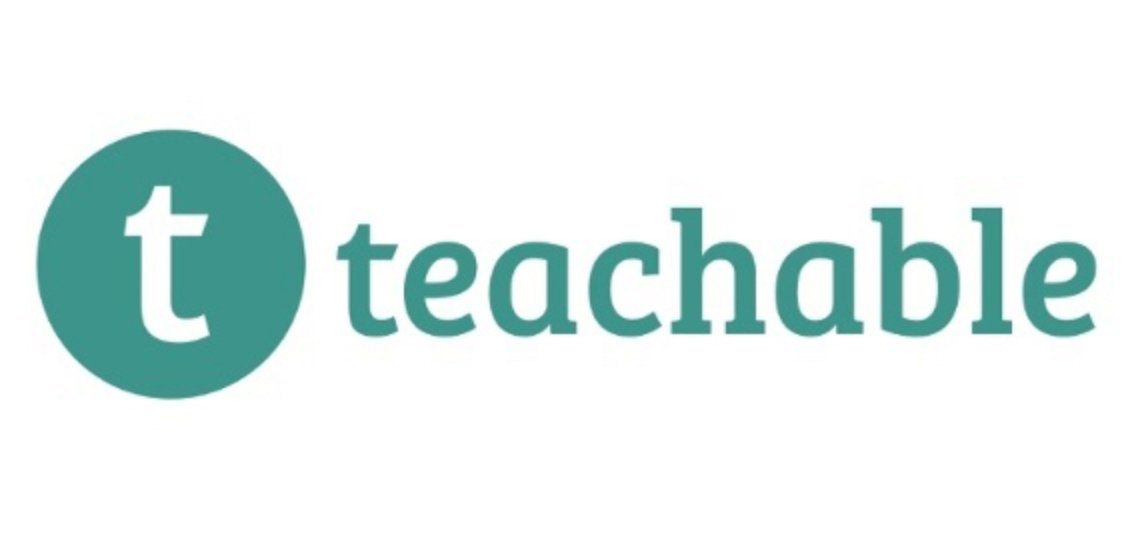Online courses are a source of passive income. You can sit back and relax after setting up everything and it’s all good to go and watch while your product earns income for you. You can create affiliate programs in return for a commission if you can’t advertise your product yourself.
When selling and creating online courses, your platform of choice has to be simple and easy to use. After all, we would not want to divert too much valuable time tackling the technical elements of the site.
The ease of access, instant reach to world-class instructional content, and learning at their own speed are what students want. That said, as course creators, of course, we want to make it happen for our business.
So, to help narrow your choices, we’ll examine how Teachable holds up against five other online learning platforms for this report.

Before you go on, you may want to check out this video by Roberta West on YouTube that gives a quick review. Afterward, you will want to read the rest of our article for a more comprehensive review.
Teachable vs. Thinkific Google Classroom Vs Teachable
There are a lot of features that overlap between Teachable and Thinkific. The two are constantly competing with each other with their features and prices.
Known to be very beginner-friendly, Teachable wins the round for ease of use. Those with minimal tech experience will find it simple to navigate through the platform. They may set up their website very quickly. No expertise in coding is needed for this.
Users can change their site layout and add all kinds of content with their drag and drop editor. Teachable supports all sorts of multimedia content- videos, surveys, and discussions, amongst others. Course creation is easily customizable. You can even create lessons for getting assignments and projects.
Certain navigational features of Teachable place it higher in my books. For example, you can change the setting for many courses on a single page. Thinkific can’t do the same. You would need to go into the backend of each category individually for the same purpose.
However, Thinkific offers you lots of themes with many styles in regards to site building. You can choose whichever would fit your branding the most.
Talking about analytics, both programs are head to head in regards to tracking students’ standing or leveraging data analytics to optimize marketing campaigns. Teachable, nevertheless, has an in-built attributes which include affiliate programs and payouts and provide customized pricing plans to your students. Promotional offers can also boost your pupil conversion rate.
While Thinkific also offers subscriptions, affiliates, discounts, and the like, Teachable has a more straightforward check-out process. Before accessing the payment page, buyers have to create accounts in Thinkific first, which could simplify the process to maximize conversion rates.
If you’re looking for something with more flexibility on course creation, student participation, and ease of use, try Teachable. Thinkific is a good alternative if you’re prioritizing custom branding and site capabilities.
Teachable vs. Kajabi
Kajabi is an “all-in-one” online learning platform. Course production, memberships, email advertising, pipelines, sales, and sales funnels, to name a few, are what it deals with. Whereas, Teachable is mainly an online course creation platform.
With Kajabi, you can decide on a website, including a blog filled with customizable alternatives. The wide range of choices for customizing might be overpowering as a beginner. If you are not into coding, even more so. Kajabi does supply an extensive library with tutorials on how to navigate the platform and how to get started.
Kajabi is excellent for experienced users who’ve already had experience creating online classes. It has much to offer in terms of customization and flexibility.
Teachable’s set-up is pretty straightforward and intuitive. It offers a variety of choices that will fit any course type. So, you can check out its features with its free 14-day trial before committing.
Teachable offers multiple classes and students in their own plans. Suppose that you have more than one bundle or product to market. In that case, you could also sell them as a package to boost your revenue. With Kajabi, you are limited on the number of courses and students to have, even on their higher plans.
Kajabi shines with its marketing feature. As an “all-in-one” platform, it provides various marketing support such as sales funnels, pipelines, and automation.
Now, do take note that Kajabi is on the higher end of the line. It is almost 3x the purchase price of Teachable.
Aside from its price point, also consider the size and kind of business you have. Kajabi makes sense for more prominent businesses and companies which want to get a platform to look after their technical and marketing requirements. For smaller companies, Teachable is perfect, especially if you have already secured some features such as a full-fledged autoresponder and landing pages for your site. You can easily incorporate your website and email marketing list into this.

> > Click Here to Sign Up for Free in Teachable < <
Teachable vs. Udemy
Both Teachable and Udemy are well-known as easy-to-use platforms.
Suppose you are looking to develop your branding and customize your page. In that case, Teachable lets you have complete control over how you create your course. You can have your site be a subdomain by Teachable, or you could create a personalized domain.
When you get Udemy’s homepage, you’ll find it more geared toward the student. You will find links for becoming an instructor or using Udemy for your organization if you scroll towards the bottom of the page. You are restricted to Udemy’s branding. You cannot change the layout of your page. You would also have to fulfill certain criteria for your classes to be printed which can be tedious and annoying.
Now, Udemy provides a marketplace for your courses. If you’re looking for a site which could host classes you’ve already established, Udemy makes sense as a choice. It can market your courses to its audience, which Teachable doesn’t supply. But, as it sells your courses, it would market your competition’s courses too.
You can decide on pricing and discounts to your classes with Teachable. Whereas with Udemy, class pricing must be between $20-200 dollars, and it automatically discounts your classes.
Udemy requires a certain percentage of your path earnings with them, but you would have limited control over the course and product pricing, promotions, access to student information, etc. If you would like something cheap and easy to get started with, Udemy is a fantastic option. However, have a look at Teachable if you’re looking for something which gives you total control over every aspect of creating and selling online courses and something ideal for running a company.
Teachable vs. Podia
Teachable and Podia are at similar price points for the features they offer.
Podia itself is very easy to use. Selling courses and marketing can be handled through Podia itself. There is no need for extra expenditures for other integrations.
You may personalize your sales and storefronts through the Podia Editor, even when you don’t have previous knowledge in them. Like Teachable, the user interface is intuitive, and it utilizes a “drag and drop” method. Unlike Teachable, though, you might notice that storefronts look like their customization features are limited.
Both Podia and Teachable provide memberships. So, you don’t have to seek another 3rd party for this. However, it starts at $39 for Podia and $79 for Teachable. Podia doesn’t charge additional transaction fees.
If you’re focused on a better learning experience for the students, you may enjoy Teachable’s features more. It provides you with the tools you need to personalize your content and provide your students a more engaging learning experience. It provides graded quizzes, course completion certificates, and course compliance. These, in turn, inspire your student to complete the course and contribute to your course’s success rates.
If you want to focus on the advertising side, Podia includes automated drip email campaigns, entire sales funnels, and complete revenue metrics, to name a few. These features permit you to easily communicate with your students and grow your email with no extra cost incurred.
Both Podia and Teachable offer a free 14-day trial. So, you can check out its features before committing.
So to make it easier, think about this, if you’re looking for a platform that can run your business from course creation to the marketing aspect for a fair price, Podia is the obvious option for you.
If you’re someone who values your students’ learning experience and wants to learn more about the online course business, Teachable is for you.

> > Click Here to Sign Up for Free in Teachable < <
Teachable vs. Teachery
Teachable is one of the most visually appealing platforms out there. Like Teachable, Teachery intended to be an easy-to-use online learning platform that can enable you to start your company without too much fuss. Google Classroom Vs Teachable
There are no limitations on the amount of students and courses as you would like for the same cost.
There are two-course templates you can choose from to customize according to your needs. You may change the text, add pictures, videos, and other presentations. A big thing to take notice, however, is that you have to host videos on other sites like YouTube, Vimeo, or Google Drive and embed them into your course pages since Teachery doesn’t host videos.
On the other hand, Teachable hosts unlimited video for your online courses. No extra cost is needed.
Teachery does not offer quizzes, surveys, and certificates that may improve student engagement. You also cannot provide unbranded courses. Google Classroom Vs Teachable
The Teachery logo is always seen at the bottom of all your pages. With Teachable, you can create your custom domain and develop your own branding.
Both Teachable and Teachery accept payments in various ways. They have an affiliate program to improve sales, analytics to view pupils’ engagement status, and Teachery offers these reports in easy-to-understand visuals.
Finally, let’s talk about cost. While Teachery offers all its features in a single paid plan, some of Teachable’s features are in a higher-paid program. However, Teachable doesn’t have transaction fees.
So, if you’re searching for a reasonably-priced beginner-friendly platform and/or don’t require advanced automation and email advertising, Teachery might be for you.
For unlimited video hosting, students, classes, email marketing, and other features, try Teachable.

> > Click Here to Sign Up for Free in Teachable < <
Final Verdict Google Classroom Vs Teachable
When it comes to entering a business, all of us wish to have a relatively straightforward and streamlined procedure. But when it comes to picking out the right platform, it all depends on what you require.
Teachable is an exceptional option for entrepreneurs who are only starting. If you currently have a site, blog, and mailing list and would like to focus on giving students a great learning experience with not a lot of fuss, go for it. It has a range of features that you’ll surely enjoy, which come at a reasonable price.
Of course, test the waters and check out which features you need. Hopefully, this article has helped you in making the best choice for your small business.

